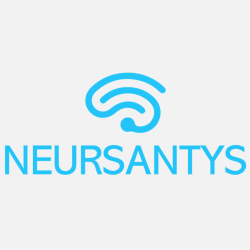Dive Brief:
- Google-owned Nest, which makes connected home devices, secretly acquired Seattle startup Senosis Health in the summer of 2017 with an eye toward building its digital health capabilities, GeekWire reports.
- Google was originally reported to have bought Senosis, a University of Washington spin-off that makes smartphone-based monitoring systems, but no mention was made of Nest's involvement. Nest and university officials declined to comment to the news site.
- Senosis makes products for monitoring hemoglobin counts, lung function, newborn jaundice and osteoporosis. ts apps — SpiroSmart, SpiroCall, HemaApp and OsteoApp — were under FDA review at the time of the sale. Those products are subject to nonexclusive licenses, meaning companies other than Nest can license the technology.
Dive Insight:
The tech site learned of the transaction after obtaining financial documents and internal communications through a public records request.
Nest joins a growing field of digital health startups and established companies that have been eyeing the sector from the get go.
At the time of the deal, Nest — which Google purchased in 2014 — was operating independently under parent Alphabet's "Other Bets" category. It has since been rolled back into Google's hardware unit.
The acquisition of Senosis suggests that Nest is looking to diversify its home thermostat and securities offerings and grab a piece of the ever-expanding digital health market. In addition to hot areas like disease monitoring and population health, there is a growing market in digital tools to monitor and assist the elderly in living at home. That could be good fit with Nest's current business line.
Google has often been secretive about its healthcare-related exploits. Nest reportedly is following suit and shedding no light on its plans. It apparently doesn't want people poking around until it is ready to launch a new product line.
Alphabet, through Google, has continued to cast its net over healthcare. Current projects range from releasing sterilized mosquitoes to reduce the spread of infectious diseases to diabetes management and artificial intelligence.
Google's Deep Brain is working with the U.K.'s National Health Service and Cancer Research UK Center at Imperial College London on early breast cancer detection. The unit is also looking at using AI to improve radiotherapy mapping for head and neck cancers.
Through its Verily life sciences arm, Google is working to develop tools for doctors. Google is also interested in honing voice technology to improve the doctor-patient experience.
Nest, should it develop a line of digital health tools, could be another feather in Google's healthcare cap. But the startup faces tough competition from other big names like Apple already in the game.













